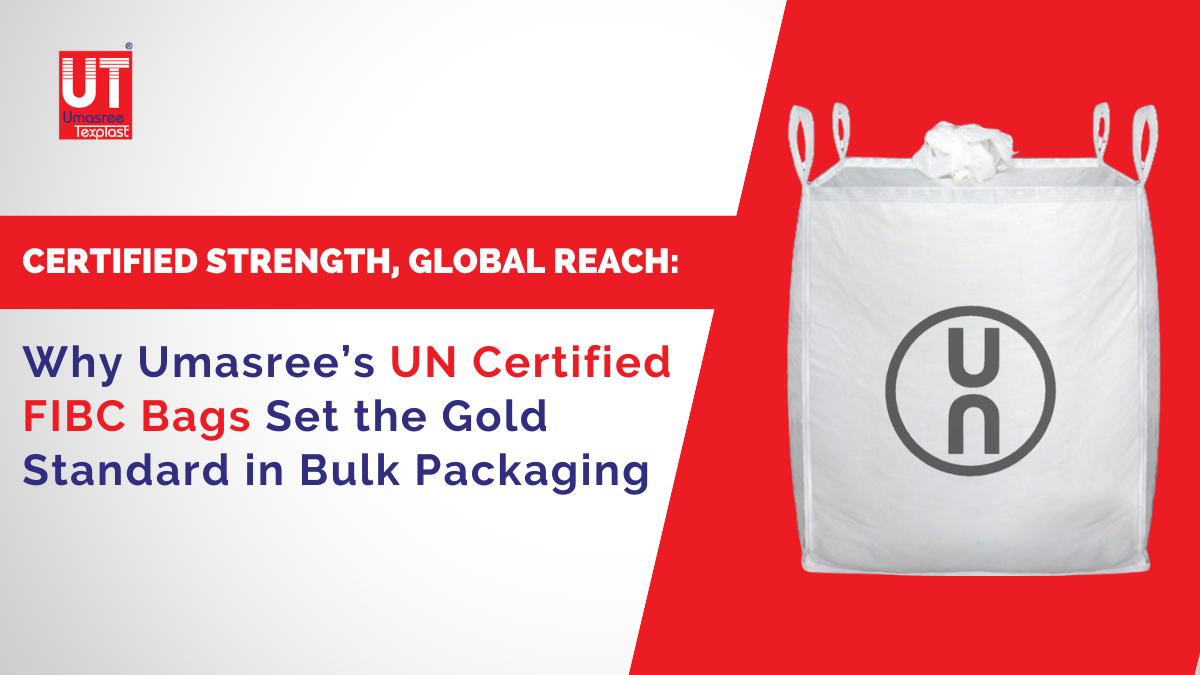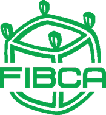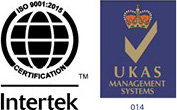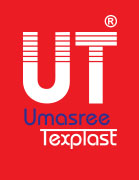Certified Strength, Global Reach: Why Umasree’s UN Certified FIBC Bags Set the Gold Standard in Bulk Packaging

In today’s rapidly evolving global trade environment, safety, compliance, and reliability in packaging are not optional—they’re essential. Especially when it comes to the transportation and storage of hazardous or sensitive materials, choosing the right bulk packaging solution can make or break the success of an operation. This is where UN certified FIBC bags step into the spotlight.
Designed to meet strict international standards, UN FIBC bags have become the gold standard for industries requiring safe and efficient packaging solutions for dangerous goods. Whether you’re in the chemical, mining, or food industry, using certified FIBC bags ensures peace of mind and regulatory compliance across borders.
Let’s explore what makes UN certified FIBC bags the ultimate solution for global bulk packaging needs—and why they are trusted by industries around the world.
What are UN Certified FIBC Bags?
UN certified FIBC bags, also known as UN big bags, are specialized bulk containers designed to handle and transport hazardous materials safely. These bags comply with the stringent testing standards laid out by the United Nations Recommendations on the Transport of Dangerous Goods (also known as the Orange Book). The certification ensures that these bags are capable of withstanding extreme conditions during handling, transportation, and storage.
Unlike regular bulk bags, UN FIBC bags are subjected to rigorous testing, including:
- Top Lift Test
- Drop Test
- Stacking Test
- Righting Test
- Tear Test
- Topple Test
Only after passing these evaluations can a bag be marked with a UN certification code that indicates its suitability for specific hazardous materials.
Types of UN FIBC Bags
According to the kind of hazardous material they are designed to transport, UN-certified bags are divided into different categories. The most common types include:
- UN13H1 / UN13H2 – Woven Polypropylene Bags (without liner or with liner)
Ideal for transporting solids like chemicals or powders that may pose environmental or health risks.
- UN13H3 / UN13H4 – Coated or Uncoated Bags with Inner Liners
Used for more sensitive materials requiring added protection against moisture or contamination.
- UN FIBC Type B C or D
Designed for electrostatically sensitive environments, these bags prevent sparks that could cause fires or explosions.
Understanding the UN coding system is essential for selecting the right bag for your application, and choosing a trusted supplier ensures full compliance.
Why are UN Certified FIBC Bags Crucial for Your Business?
Using UN FIBC bags is crucial for both safety and regulatory compliance. Here’s why more and more global businesses are shifting to certified bulk packaging:
1. Global Regulatory Compliance
UN certification guarantees that the bag meets international transport standards set by agencies such as:
- IMDG (International Maritime Dangerous Goods Code)
- ADR (European Agreement concerning the International Carriage of Dangerous Goods by Road)
- DOT (Department of Transportation – USA)
Using UN certified FIBC bags allows businesses to seamlessly export or import hazardous goods across global markets without risking customs rejections or legal penalties.
2. Enhanced Safety for Hazardous Materials
Transporting dangerous goods without certified packaging can lead to serious accidents, including chemical spills, fires, or exposure to toxic substances. UN FIBC bags are engineered to contain these risks by maintaining integrity under pressure, movement, and environmental changes.
3. Reliability Across Harsh Conditions
From long-distance shipping to rough industrial environments, UN certified FIBC bags are built to withstand it all. Their high structural integrity ensures that materials remain secure even during stacking, dropping, or mechanical handling.
4. Brand Reputation and Trust
Companies that use certified packaging build a reputation for safety, responsibility, and professionalism. It sends a message to clients, regulators, and logistics partners that you prioritize quality and safety in every aspect of your supply chain.
Applications Across Diverse Industries
FIBC bags with UN certification are not limited to chemical industries. Their usage spans a wide range of sectors, including:
- Chemical Manufacturing – For safely packaging and transporting powdered or granular chemicals.
- Mining Industry – For handling minerals and ores that may pose environmental hazards.
- Agrochemicals – For fertilizers, pesticides, and herbicides.
- Waste Management – For storing and disposing of hazardous industrial waste.
- Paints and Pigments – For transporting colorants or solvent-based materials.
Each of these industries depends on safe and robust packaging solutions—and UN FIBC bags deliver exactly that.
Features That Make UN FIBC Bags the Gold Standard
Let’s break down what gives UN certified FIBC bags their superior status:
- High Tensile Strength
These bags are capable of supporting heavy loads between 500 and 2000 kg because they are made of woven polypropylene with sophisticated stitching and seams.
- Chemical and UV Resistance
A lot of UN FIBC bags are lined or coated to prevent UV deterioration and chemical corrosion, increasing their useful life.
- Tamper-Proof Construction
Designed to prevent leakage and reduce handling risks, UN bags feature tamper-proof closures and locking mechanisms.
- Customization Options
From liners and coatings to loop types and discharge spouts, UN certified bags can be tailored to suit specific product requirements and transportation modes.
- Eco-Friendly and Recyclable
Many certified bags are recyclable and can be reused in compliant environments, contributing to sustainability goals.
How to Identify a Genuine UN Certified FIBC Bag?
Each certified bag must display a UN code that indicates its specifications, including:
- Material type
- Load capacity
- Year of manufacture
- Manufacturer code
- Certification test type
Always ensure your bags come with proper documentation and visible UN markings, and source them only from experienced, certified manufacturers.
Choose Trusted Manufacturers for Guaranteed Compliance
Not all producers of bulk bags are authorized to make UN FIBC bags. It’s critical to partner with a producer that not only has the technical capability but also understands international transportation laws, quality control, and testing procedures.
Working with an experienced UN FIBC bag supplier ensures:
- Accurate design and material selection
- Reliable manufacturing processes
- Certification support and documentation
- On-time global delivery
Conclusion
When it comes to shipping hazardous or sensitive goods, there’s no room for compromise. UN certified FIBC bags offer the certified strength, compliance, and durability that global industries demand. From protecting products and the environment to satisfying international laws, these bags are setting the benchmark for safe bulk packaging.
Whether your operations span continents or just regional markets, investing in UN FIBC bags is a strategic move that secures your goods, reputation, and bottom line.
To guarantee tested quality and international compliance, choose Umasree Texplast, a trusted name in manufacturing high-performance UN Certified FIBC Bags.





